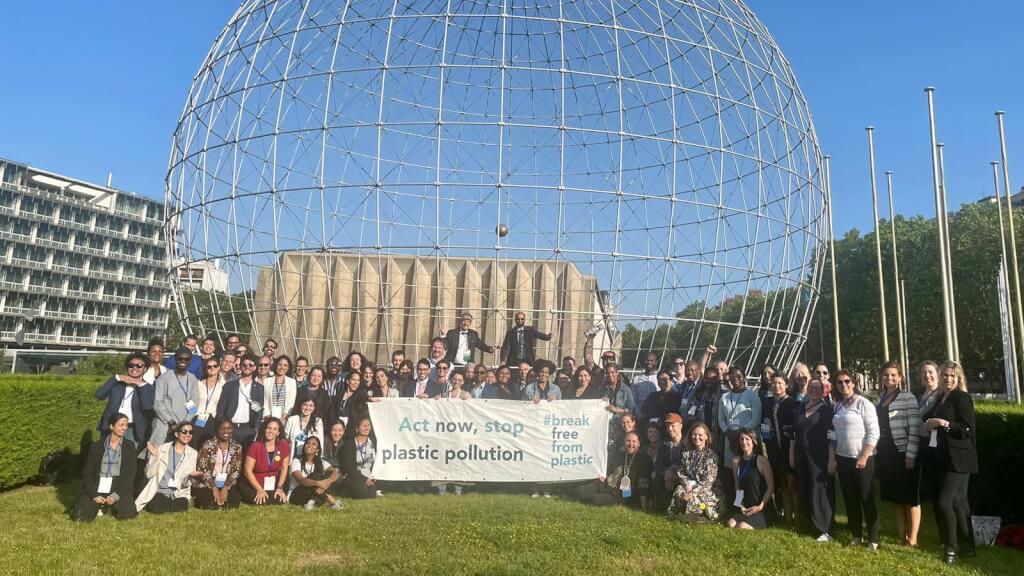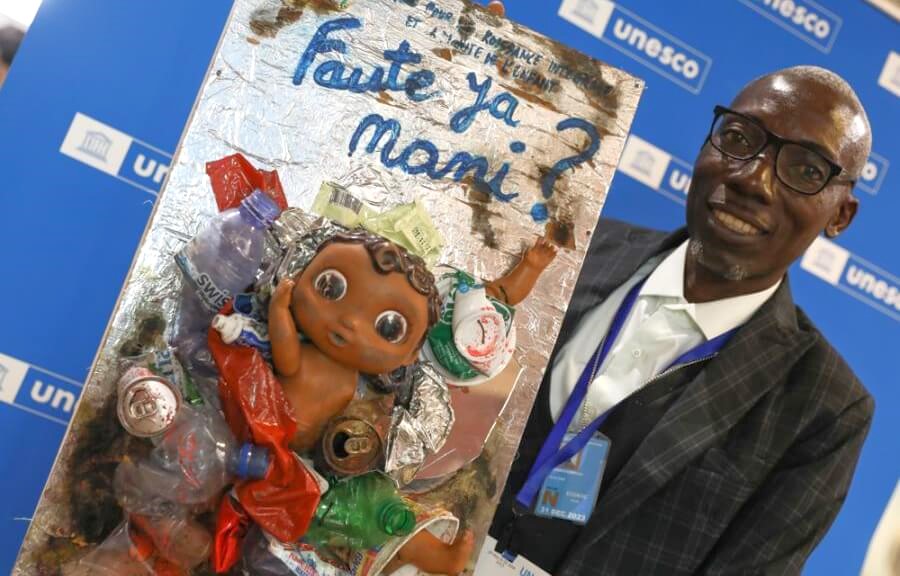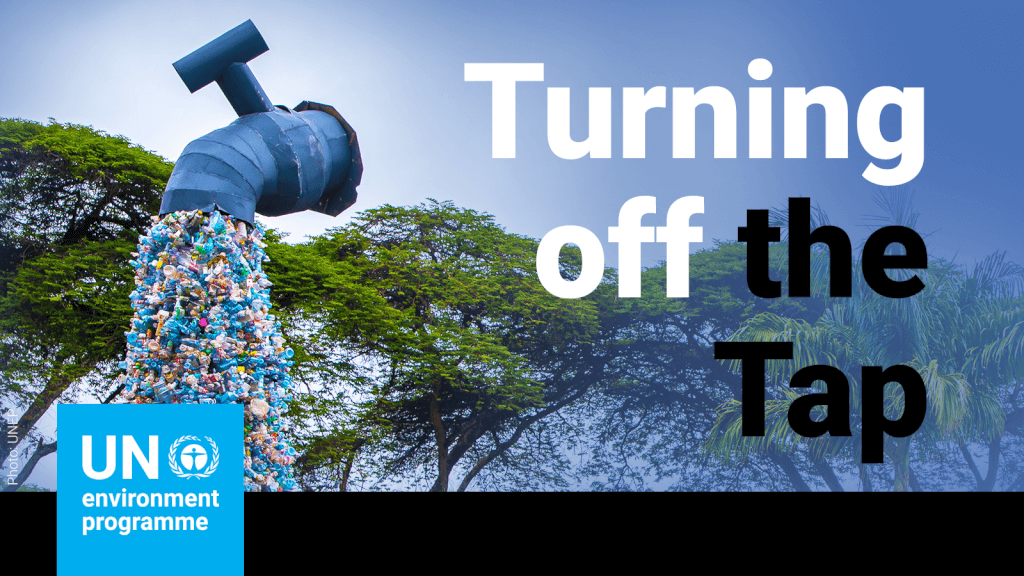Two billion beverage bottles are used and discarded around the world every day, flooding the land and choking the waterways with plastic pollution. With dire messages from ecologists, it’s time to “turn off the tap” of this constant polluted flow of plastic, Inger Andersen, executive director of the UN Environment Programme (UNEP) told delegates at a meeting to develop a legally-binding instrument to end plastic pollution.
“The way we produce, use and dispose of plastics is polluting ecosystems, creating risks for human health and destabilizing the climate,” Andersen said of UNEP’s latest report on the issue. And to reduce the flow of pollution, the first goal is “the elimination of unnecessary plastic” – such as single-use items, which account for 44 percent of plastic production – by 2040 or sooner, she said.
Andersen spoke at the second meeting of the Intergovernmental Negotiating Committee (INC-2) tasked with hammering out a plastic pollution treaty, which was held at UNESCO headquarters in Paris from 29 May 29 to 2 June 2023. It brought together delegates from UN member states and observers from think tanks, industry, and NGOs including IWC.

But mandating an end to plastic pollution is no easy task. The delegates were basically divided into three camps. Countries like Norway, Rwanda, and member states of the European Union want a ban to eliminate “problematic plastics” and set global targets, while others – including the United States – think each country should set its own national goals. Oil-producers like Saudi Arabia – fossil fuel is needed to produce plastic – called for flexibility and a focus on recycling. However, the UNEP’s Andersen warned, “We can’t recycle ourselves out of this mess.”
Plastic pollution is more than a waste problem. Plastic causes numerous health problems, from the microplastics in the air and in personal care products to the chemicals in the plastic wrapped around our food. ICUUW joined other women-focused NGOs in pointing out another dimension of the problem: the disproportionate impact of plastic pollution on women’s livelihoods and health.

Adolphe Tungilu Luwana, Office for the Integrated Growth and Dignity of the Child (BCIDE), holds a piece of art from plastic waste, made by children in the Democratic Republic of the Congo, that asks 'whose fault is this?'
ICUUW helped draft the final statement of the Women’s Major Group to UNEP calling for the proposed plastic pollution treaty to recognize the gender aspect of the problem and to ensure that women are involved in the decision-making every step of the way in formulating this legally-binding instrument.
Negotiations will continue in November in Nairobi, where UNEP is based, followed by a meeting in Canada in April 2024. The goal is to complete the negotiations by the end of next year.
The meeting in Paris ended with the INC chair quoting French writer Victor Hugo: “It is sad to think that nature speaks, and human beings do not listen. When we listen to nature and we act, we can make progress.”
